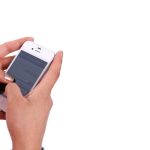As helpful as your smartphone is, it’s easy to develop an unhealthy attachment to it, one that can even become an addiction. It also can isolate you from other people.
For instance, looking at your phone in social settings keeps you from looking at others, whether loved ones, friends or co-workers, and missing the connection that comes from making eye contact.
Research shows that just having a phone in view interferes with the connection between people and the quality of their interaction. There’s even a term for preferring your phone to people: phubbing (it’s pronounced fubbing). It’s short for phone snubbing, when you’re in a social setting and concentrate on your phone instead of talking to the person you’re with.
Even more dangerous is “P-phubbing,” (it’s pronounced pee-fubbing) and happens when you phub your partner, or vice versa. People phub and are phubbed. It can erode marital satisfaction and overall satisfaction with life.
Phubbing grows not only from smartphone overuse, but also from being addicted to the internet and the fear of missing out on something — yes, the famous acronym FOMO — if you’re not always connected.
To prevent phubbing, keep your phone in a pocket or purse when you’re with other people and focus exclusively on them. Be part of the conversation that’s happening in front of you in real time. Your behavior can, in turn, serve as an example for those around you.
If phubbing is happening within your romantic relationship, talk openly with your partner about the problem and how you can resolve it together.
More information
Find out more about phubbing from the Greater Good Science Center at UC Berkeley.
Source: HealthDay
Copyright © 2026 HealthDay. All rights reserved.
















